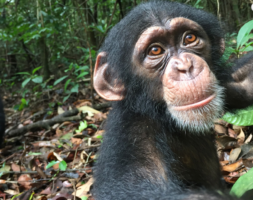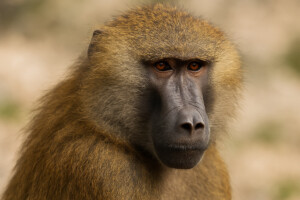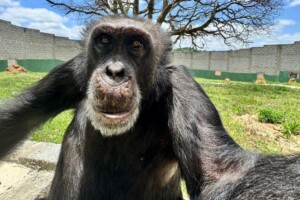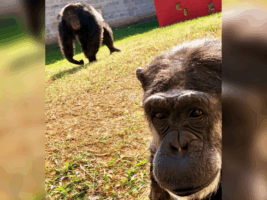Pioneering efforts of the Public Ministry in Brazil
Days ago we received a visit at GAP Sanctuary of Sorocaba of two prosecutors of Sao Paulo, of an environmental area. The Public Ministry of São Paulo, in a pioneering initiative, created the Task Force to Combat Environmental Crime and Irregular Installment Urban Land.
It is the first time a Brazilian State takes the initiative to create a specialized area in environmental affairs to look specifically at allegations of crimes of this nature coming to its knowledge.
Dr. Carlos Henrique Prestes Camargo and Dr. Vânia Tuglio had the opportunity to visit the sanctuary and get to know more about the great apes, big cats and bears, and we also had the chance to explain them about the most common abuse committed against animals in circuses, zoos and private individuals.
Talking to them, I made it clear that more than a sanctuary, the place is a madhouse, which collected those innocent beings who were converted to mentally disturbed animals due to the deleterious action of humans, who exploited and kept them in captivity for years the inhuman conditions, causing the madness that affects them.
We were able to explain clearly that any animal – and the great apes even more, given their high degree of intelligence – placed in a cage for a long period of time is submitted to mistreatment and all people who practice this act should be charged with environmental crimes.
We congratulate the Public Prosecutor of São Paulo for having decided to create GECAP and we are available to collaborate and to help its members to understand and meet the environmental wildlife in our state.
Another pioneering initiative, which must also be remembered, was the action of the Public Ministry of Bahia state, which fought against zoos, where many crimes against wildlife are committed. In an agreement promoted and headed by Prof. Dr. Heron Santana (author of the recent Habeas Corpus to release two chimpanzees of Brazilian zoos), Salvador Zoo committed not to replace more exotic animals in its collection and radically change its practice.. Zoo Salvador became the first one in the country to dedicate their facilities to environmental education, showing the different biomes and fauna of the State of Bahia, besides developing projects of reintroduction of the species.
It is a common practice in all Brazilian zoos not give a damn to our immense biodiversity, and only invest in exotic large animals, as they are the ones that attract the public: elephants, tigers, giraffes, chimpanzees, gorillas, hippos are the preferred species, investing a large portion of public resources to the detriment of the national fauna.
The case of the gorillas in the zoo in Belo Horizonte, in which were invested R$ 500,000 of public money that could have saved the lives of hundreds of native monkeys that die for lack of a suitable home is one of the clearest examples. Read more about this case in https://www.projetogap.org.br/en-US/noticias/Show/4202,id-amin-a-predictable-death
Zoos maintained with public money should serve a social and national function. The deficiencies of giving shelter to thousands of individuals of our fauna that are caught by trafficking are enormous and a change of attitude is urgent. The example that prosecutors of Bahia and Salvador Zoo are given with this agreement is the beginning of the transformation of public zoological centers in Brazil into Conservation and Education centers.
An example to be followed immediately!
Dr. Pedro A. Ynterian
President, GAP Project International

 Español
Español
 Português
Português








